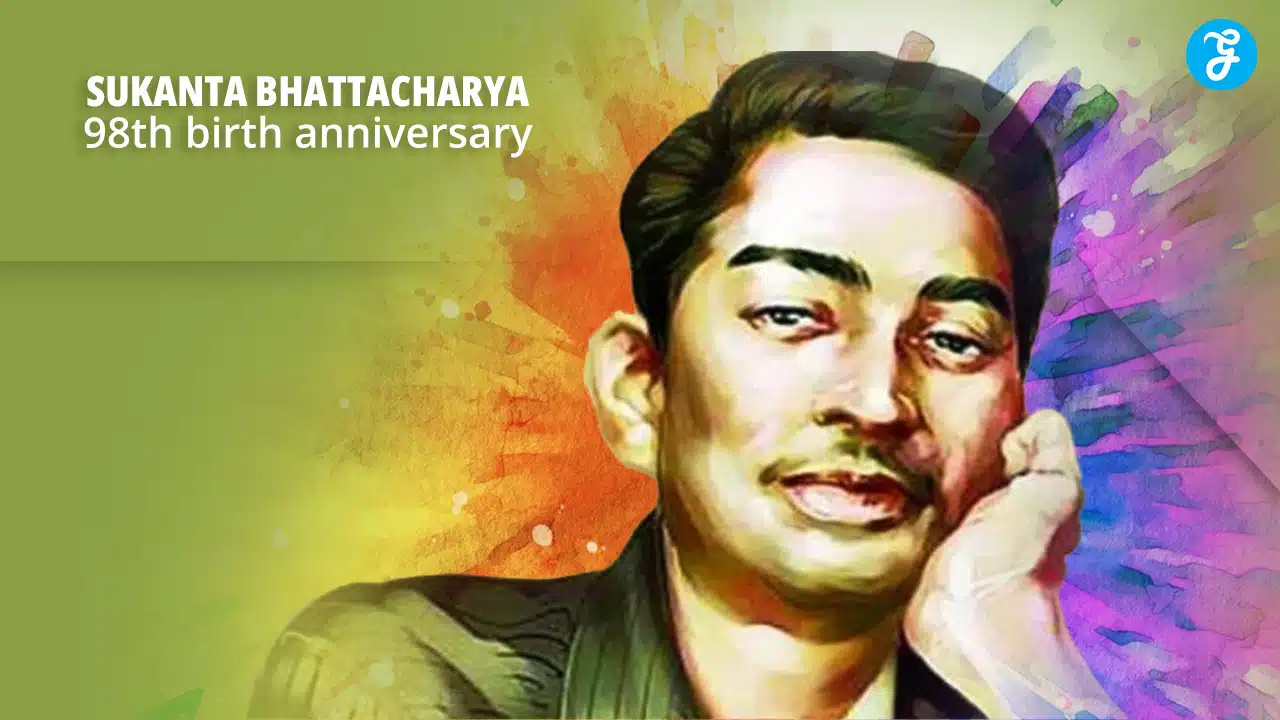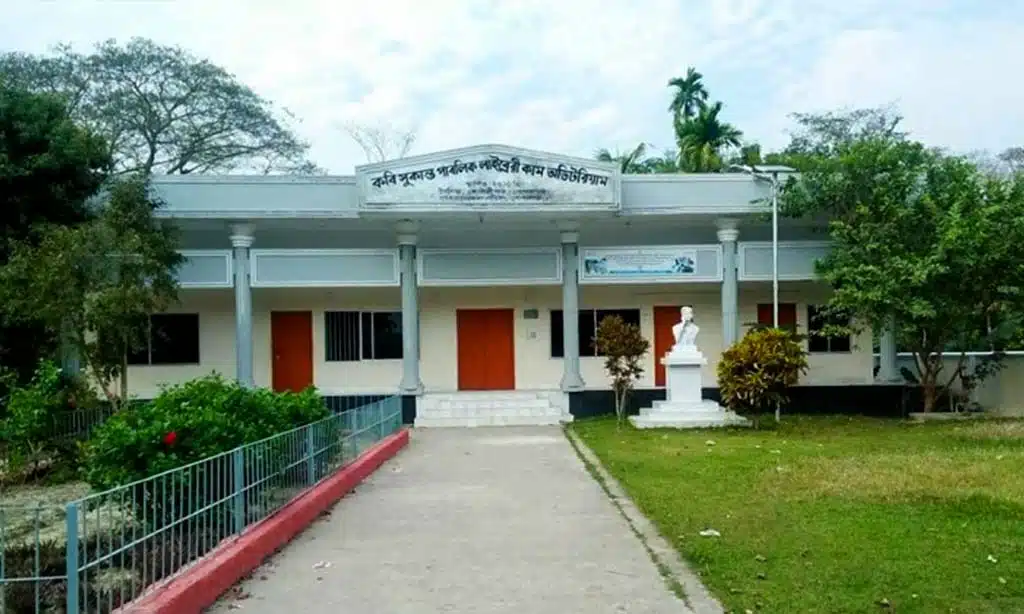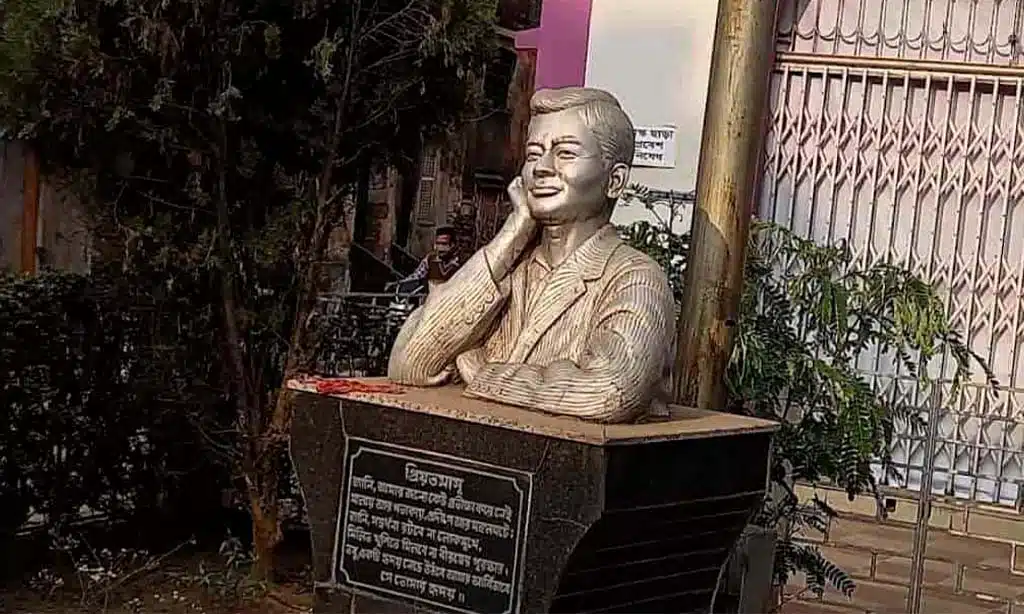Sukanta Bhattacharya’s words continue to inspire readers nearly a century after his birth. Born on August 15, 1926, the Bengali poet left a lasting mark on literature despite his short life. His poems spoke of hunger, rebellion, and hope for a better world.
Bhattacharya’s powerful verses captured the struggles of common people and the fight against injustice. He wrote about social issues and the harsh realities of life in British-ruled India. His work blended revolutionary ideas with vivid imagery that touched many hearts.
Today, on what would be his 98th birthday, Bhattacharya’s poetry still feels fresh and relevant. His themes of fighting oppression and dreaming of a fairer society connect with new generations of readers. The young poet’s passion and talent shine through his words, keeping his legacy alive decades after his passing.
Sukanta Bhattacharya: Early Life and Struggles
Sukanta Bhattacharya‘s short life was marked by hardship and creativity. He faced poverty, illness, and social unrest, yet produced powerful poetry that still resonates today.
Bengal Famine of 1943
The Bengal Famine deeply impacted young Sukanta. Millions starved as food shortages ravaged the region. Sukanta saw suffering all around him in Calcutta. His poems reflected the tragedy:
“Hunger’s torch burns in the chest The stars seem bread in the sky”
These lines show how the famine shaped his worldview. He wrote about the pain of empty stomachs and the desperation for food.
Sukanta Bhattacharya’s Family Background
Sukanta was born in 1926 to a middle-class family in Calcutta. His father worked as a printer. The family struggled financially. This affected Sukanta’s education and health. He often went hungry. But his parents encouraged his love of reading and writing.
At home, Sukanta was exposed to books and ideas. This nurtured his talent from a young age.
Early Works and Saraswat Library
Sukanta started writing poetry as a teen. The Saraswat Library in Calcutta played a key role. It gave him access to books and a space to write.
His first poem was published when he was 15. It was called “Runner” and appeared in a magazine. This early success spurred him to keep writing.
Sukanta’s poems dealt with social issues. He wrote about poverty, injustice, and hope for change. His work showed wisdom beyond his years.
Literary Works of Sukanta Bhattacharya
Sukanta Bhattacharya’s writings left a lasting impact on Bengali literature. His poems and prose captured the struggles of his time with raw emotion and vivid imagery.
Poetic Themes and Styles
Bhattacharya’s poetry often focused on social issues and the plight of the poor. He wrote about hunger, war, and injustice with a mix of anger and hope. His style was direct and powerful, using simple language to convey complex ideas.
Many of his poems had a revolutionary spirit. He called for change and inspired readers to action. Bhattacharya used metaphors from nature to describe human struggles. His words painted pictures of both beauty and suffering.
Notable Publications
Bhattacharya’s first and only poetry collection published during his lifetime was “Chharpatra” (1947). It contained some of his most famous works.
“Purbabhas” was published after his death. It included more of his poems and writings. “Ghiti Guchha” gathered his prose pieces. These books helped cement his place in Bengali literature.
“Sukanta Samagra” collected all his known works in one volume. It gave readers a full view of his talent and ideas.
Connection to Bengali Culture and War
Bhattacharya wrote during a tumultuous time in Bengal’s history. His work reflected the impact of World War II and the struggle for independence.
He captured the spirit of Bengali culture in his poems. Bhattacharya wrote about local traditions and everyday life. At the same time, he addressed universal themes of human suffering and resilience.
His poems became popular for recitation. “Chhanda o Abritti” helped introduce his work to new generations. Bhattacharya’s words continue to resonate with Bengali readers today.
Sukanta Bhattacharya’s Political Influence and Ideology
Sukanta Bhattacharya’s poetry reflected strong political ideals and social consciousness. His work blended Marxist thought with patriotism and humanism, leaving a lasting impact on Bengali literature and political discourse.
Influence of Kazi Nazrul Islam
Bhattacharya earned the nickname “Young Nazrul” for his rebellious stance against British rule. Like Kazi Nazrul Islam, he used his poetry to challenge oppression and inspire change. His verses often echoed Nazrul’s fiery spirit and call for social justice.
Bhattacharya’s poems spoke out against inequality and exploitation. He wrote about the struggles of workers and peasants, giving voice to their hardships. His words stirred emotions and rallied people to fight for their rights.
Participation in Relief Work
Despite his young age, Bhattacharya took part in relief efforts during times of crisis. He was present when the Bengal famine of 1943 caused great suffering. This experience deeply affected his writing and worldview.
Bhattacharya helped distribute food and aid to those in need. His poems from this period reflect the pain and anger he felt at seeing widespread hunger and poverty. He criticized those in power for their inaction and called for systemic change.
Legacy in Political Thought
Bhattacharya’s work continues to inspire political activists and thinkers. His poems are often quoted in speeches and protests. Many see his words as a call to action for social justice and equality.
His blend of Marxist ideas with Bengali cultural elements created a unique political voice. Bhattacharya’s poetry showed how local traditions could be used to express revolutionary ideals. This approach influenced later Bengali writers and politicians.
Though he died young, Bhattacharya’s impact on Bengali political thought remains strong. His vision of a just society free from oppression still resonates with many readers today.
Why Sukanta Bhattacharya’s Words Still Resonate
Sukanta Bhattacharya’s impact on Bengali literature remains strong decades after his death. His words continue to inspire and move readers, cementing his place in the pantheon of great poets.
Influence on Later Generations
Bhattacharya’s poetry sparked a new era in Bengali literature. His use of vivid imagery and powerful metaphors influenced many writers who came after him.
Young poets often look to his work for inspiration. They admire his ability to capture complex emotions in simple words.
His poems about social issues still resonate today. Many modern Bengali poets credit Bhattacharya for showing them how to write about difficult topics.
Adaptations and Recitations
Bhattacharya’s poems have found new life through music and performance. Composers have set his words to melodies, creating popular songs.
Salil Chowdhury, a famous musician, adapted several of Bhattacharya’s poems. These songs helped introduce the poet’s work to new audiences.
Recitations of Bhattacharya’s poems are common at cultural events. Actors and poetry lovers often perform his works on stage and on the radio.
His poem “Hey Mahajibon” is a favorite for recitation. Its powerful imagery of the moon and hunger makes it a moving performance piece.
Posthumous Recognition
After his death, Bhattacharya’s reputation grew. Critics praised his talent and lamented his early passing. Several awards now bear his name. These honors recognize new poets who show promise like Bhattacharya did.
Schools teach his poems as part of the Bengali curriculum. This ensures new generations learn about his contributions to literature.
In 2024, on what would have been his 98th birthday, events across Bengal celebrated his life and work. This shows the lasting impact of his short but brilliant career.
Reflections on His 98th Birthday
Sukanta Bhattacharya’s words continue to touch hearts and minds today. His poems speak to new generations, showing the lasting power of his art.
Commemorative Events and Publications
Many events mark Sukanta Bhattacharya’s 98th birthday. Schools hold poetry readings of his work. Libraries put up displays about his life and writing.
New books about Bhattacharya have come out this year. These include:
- A collection of essays by literary critics
- A graphic novel about his life for young readers
- A new translation of his poems into English
These books help more people learn about Bhattacharya’s ideas and art.
Continuing Relevance in Literature
Bhattacharya’s poems still feel fresh today. His themes of hope and social justice resonate with modern readers. Writers cite Bhattacharya as an influence on their work. His direct style and powerful images inspire new poets.
Critics study Bhattacharya’s poems in the context of today’s issues. They find his words speak to current struggles for equality and freedom. Bengali literature classes often include Bhattacharya’s work. Students connect with his youthful voice and passionate beliefs.
Inspirational Figure for Current Generations
Young activists look to Bhattacharya as a role model. His commitment to social change at a young age inspires them. Social media posts share Bhattacharya’s quotes. His words spread to new audiences through these platforms.
Art exhibits feature works inspired by Bhattacharya’s poems. Painters and sculptors create pieces that bring his words to life visually. Youth poetry contests honor Bhattacharya’s memory. These events encourage new writers to follow in his footsteps.
Takeaways
Sukanta Bhattacharya’s words continue to inspire and move readers today. His poetry speaks to universal themes that transcend time and place.
Bhattacharya’s short life produced works of lasting impact on Bengali literature. His vivid imagery and passionate voice captured the struggles of his era.
The poet’s ability to blend social commentary with lyrical beauty set him apart. He gave voice to the voiceless and hope to the downtrodden. Bhattacharya’s legacy lives on through his timeless verses. New generations will discover the power and relevance of his words.
His influence on Bengali poetry and culture remains strong decades after his death. Bhattacharya’s works are still studied, recited, and cherished.
The poet’s commitment to social justice and human dignity resonates in today’s world. His call for a more equal society still rings true.
Sukanta Bhattacharya left an indelible mark on Bengali literature in his brief 21 years. His words continue to touch hearts and minds across generations.







































